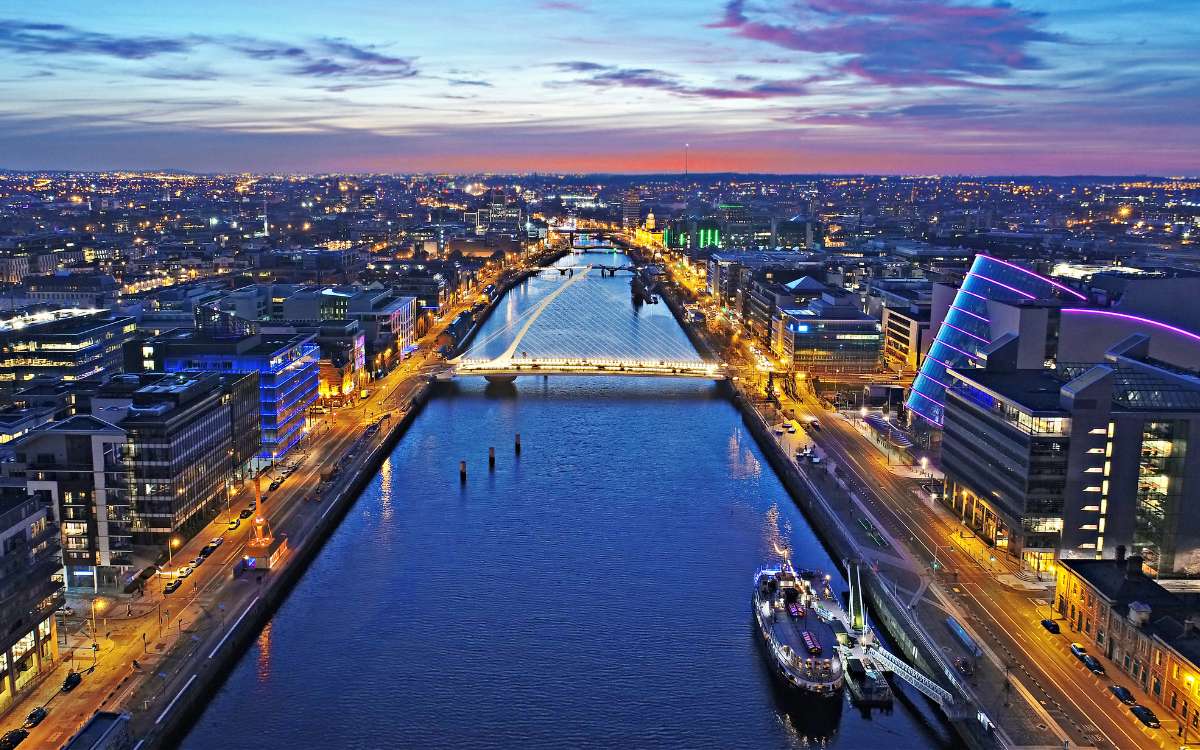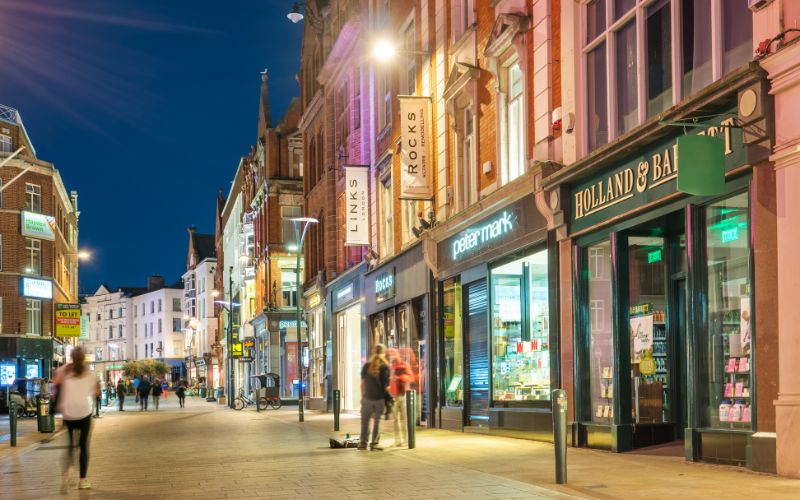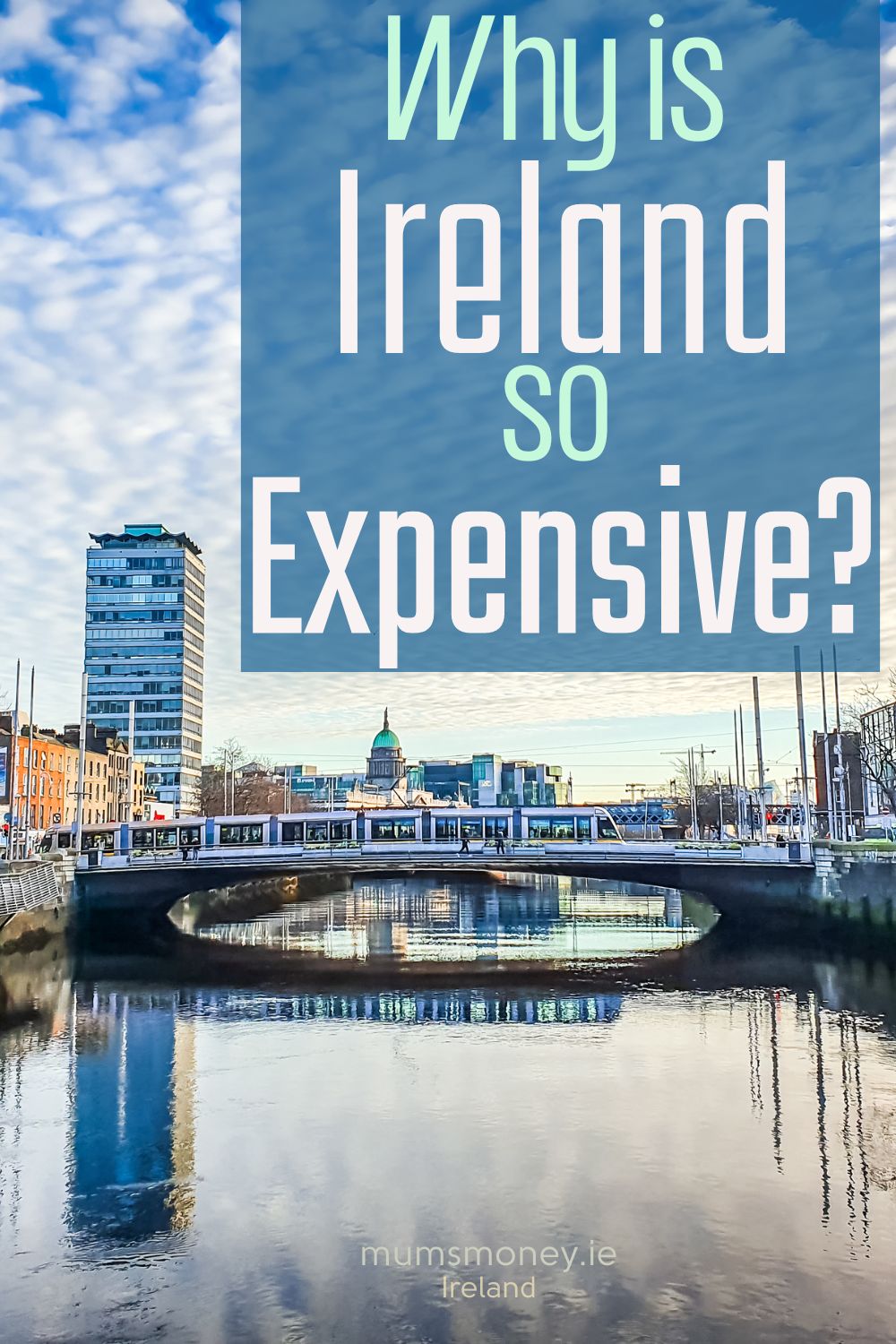It’s no secret that living in Ireland can be quite costly, and you may have already noticed that the prices of goods and services seem relatively high compared to other countries.
With Ireland being ranked as the 16th most expensive place to live in the world, understanding the reasons behind the high costs is essential.
While travelling or residing in Ireland, you might feel the pinch in multiple areas, such as energy, food, private ownership of services, and rent or homeownership.

To help you get a better grasp of the situation, we’ll explore some of the major factors that contribute to the high cost of living in this beautiful country.
This way, you can be better prepared and budget accordingly for your time spent in Ireland.
High Cost of Living in Ireland
Housing and Rental Prices
In Ireland, especially in cities like Dublin, Cork, and Galway, the housing and rental prices are among the highest in Europe.
This significantly contributes to the high cost of living.
As a resident, you may find it challenging to afford comfortable housing without stretching your budget.
Property prices have been rising consistently, and rental costs are near the top of the European league.
Expensive Utilities and Energy Costs
Another factor contributing to the high cost of living in Ireland is expensive utilities and energy costs.
As a consequence, you may end up paying more for your electricity, gas, and water bills.
The high cost of energy can affect both households and businesses, increasing the prices of goods and services.
Increased Transportation Expenses
Transportation expenses in Ireland are relatively high compared to other European countries.
This includes both public transportation, like buses and trains, as well as the cost of running a private vehicle.
As a result, you may find that getting around can be quite expensive, impacting your daily budget and overall cost of living.
Food and Grocery Prices
When it comes to food and grocery prices, Ireland ranks among the most expensive places in the world.
The cost of food items is generally higher than in other EU countries, which is important to factor in when planning your grocery budget.
This can be attributed to various reasons, like increased transportation costs, tariffs, and local taxes.
Inflation Rates
Ireland has experienced notably high inflation rates in recent years, peaking at 9.6% in 2022.
The rising inflation adds to the high cost of living, making it difficult for you to maintain your desired lifestyle.
Inflation affects various sectors, including housing, transport, and consumer goods, causing overall prices in the country to rise.
Economic and Government Factors

Tax System and VAT Rates
In Ireland, you might notice that the tax system plays a significant role in the high cost of living.
The country has a relatively high personal income tax rate, which can affect disposable income.
Ireland’s VAT rates are among the highest in the EU, leading to higher prices for goods and services.
This ultimately impacts your expenses and overall cost of living.
Wage and Earnings Levels
Another factor contributing to the high cost of living in Ireland is the wage and earnings levels.
On one hand, higher wages can lead to better living standards for workers.
However, they can also push up the cost of goods and services as businesses have to compensate for increased labour costs.
This, in turn, will affect the prices you pay for everyday items.
Exchange Rate and Currency
The exchange rate and currency can also impact the cost of living in Ireland.
As a member of the Eurozone, Ireland uses the euro (€) as its currency.
When the euro is strong against other currencies- such as the US dollar- it can lead to higher import costs, making imported goods and services more expensive for Irish consumers like yourself.
This can contribute to the overall higher cost of living in the country.
Investments in Public Services
Investments in public services, such as healthcare, education, and infrastructure, can also influence the cost of living in Ireland.
While these investments are essential for maintaining a high quality of life, they can come at a cost to taxpayers.
Increased government spending on public services may lead to higher taxes or other fees, which in turn may affect your overall cost of living.
Government Policies
Finally, various government policies can impact the cost of living in Ireland.
For instance, the country has implemented policies that encourage foreign direct investment, which has led to economic growth and increased employment opportunities.
However, this growth has also contributed to higher housing costs, making it more difficult for you to find affordable accommodation.
Furthermore, policies regarding supply and demand in the housing market can also contribute to higher housing costs, affecting your overall cost of living in Ireland.
Cultural and Social Aspects

High Demand for Goods and Services
In Ireland, you’ll find a high demand for goods and services, which can contribute to the overall high cost of living.
A booming economy and strong consumer culture drive up prices, as businesses can charge more for their products and services.
When people are willing to pay higher prices, it encourages businesses to continue increasing them.
Consumer Preferences and Spending Habits
Your preferences and spending habits can play a role in the cost of living in Ireland.
The Irish tend to prefer higher-quality goods and services, which can come at a higher price.
Plus, private ownership of services can impact the overall cost of living, as a lack of state provision for certain services means that individuals must pay more for them.
Price of Alcohol and Restaurants
When it comes to alcohol and restaurants, you’ll notice that prices can be quite high in Ireland.
The government imposes high taxes on alcohol, which raises the prices in bars and off-licences.
Similarly, eating out can be more costly here due to a combination of high rent, wages, and food costs.
Education and Healthcare Costs
In Ireland, the cost of education and healthcare may also contribute to the overall high cost of living.
While public education is available, many families opt for private schooling, which comes with a higher price tag.
The healthcare system, although partly subsidised by the state, often requires individuals to pay extra for services like private consultations and certain medical treatments.
Travel and Tourism Destinations
Finally, as a popular travel and tourism destination, Ireland experiences inflation in certain areas due to high demand.
Accommodation and attractions in tourist hotspots can be more expensive, as businesses take advantage of the opportunity to charge higher prices.
By understanding these cultural and social aspects of Ireland’s high cost of living, you can better navigate the expenses and budget accordingly.
While the cost may be higher in some areas, it’s important to remember that your experience living and visiting Ireland can be well worth it for the friendly atmosphere, beautiful landscapes, and rich culture.
Comparisons with Other Countries

EU Average and Worldwide Rankings
When comparing Ireland’s cost of living to other countries, it’s essential to consider both the EU average and the worldwide rankings.
Ireland’s prices have stayed at least 20% above the EU average since 2001, and the country is ranked as the 16th most expensive place to live worldwide.
This places Ireland as more expensive than the UK, US, France, and New Zealand, but cheaper than Switzerland, Norway, and Australia.
Similarities and Differences with the UK
As Ireland is more expensive than the UK overall, it is helpful to explore specific similarities and differences between the two countries.
Both countries share high petrol prices and relatively higher private sector ownership of services.
However, Ireland’s housing costs are notably higher, with rents and homeownership becoming more unaffordable compared to the UK.
Housing Costs in France and the Netherlands
To broaden your understanding of Ireland’s housing costs compared to other European countries, let’s look at France and the Netherlands.
Despite being more affordable than Ireland, both countries still face issues with housing affordability.
In France, housing costs vary widely depending on the region, with larger cities like Paris being more expensive.
In the Netherlands, housing costs in popular cities such as Amsterdam and Rotterdam are also quite high.
To put it in perspective, Ireland’s housing costs are 94% above the EU average, demonstrating the significant contrast when comparing it to countries like France and the Netherlands.
By examining Ireland’s cost of living and housing costs in comparison to other countries, you can gain a clearer understanding of its position in the worldwide rankings and within the Eurozone.
It’s essential to keep in mind that individual factors, such as location and personal circumstances, will affect your experience in these countries.
Frequently Asked Questions
Why are living costs high in Ireland?
Living costs in Ireland can be quite high due to several factors, such as high taxes, lack of competition in some sectors, and the country’s island status.
These issues contribute to increased costs for goods and services, leaving you to pay a premium when compared to other European countries.
What makes Ireland pricey for tourists?
Ireland can be an expensive destination for tourists as well.
Factors such as high costs of accommodations, transportation, and dining out, all add to your expenses.
Moreover, attractions and activities can also be pricey, especially during the high season, when demand is high.
Despite these costs, Ireland offers an extraordinary experience, from its stunning landscapes to its rich history and culture.
What factors contribute to expensive housing?
Expensive housing in Ireland can be attributed to rising rents and homeownership costs.
High demand for housing, especially in urban areas like Dublin, combined with limited supply and strict regulations, has led to increased housing costs.
Additionally, the influx of multinational corporations establishing headquarters in Ireland has further driven up rental prices.
Why is Dublin’s cost of living so high?
Dublin’s cost of living is high due to factors such as expensive housing, high taxes, and a lack of competition in some sectors.
As the capital city, many people are drawn to the opportunities and amenities it has to offer.
This increased demand for housing and services pushes up prices, making Dublin one of the most expensive cities in Europe.
How do taxes impact prices in Ireland?
Taxes have a significant impact on the prices of goods and services in Ireland.
High taxes on items like alcohol, tobacco, and petrol contribute to increased costs for consumers.
The Value Added Tax (VAT) raises the price of many other products and services.
The revenue generated from these taxes supports social programs, infrastructure, and public services; however, it also makes everyday essentials more expensive.
Why are new vehicles costly in Ireland?
New vehicles are costly in Ireland due to several factors, including high taxes on vehicle registration, VAT, and motor tax.
Importing vehicles also incurs additional costs, such as shipping and transport fees and import duties.
Moreover, the market for new vehicles in Ireland is relatively small, restricting competition and keeping prices high.
As a result, you may find that purchasing a new car in Ireland is significantly more expensive than in other countries.

